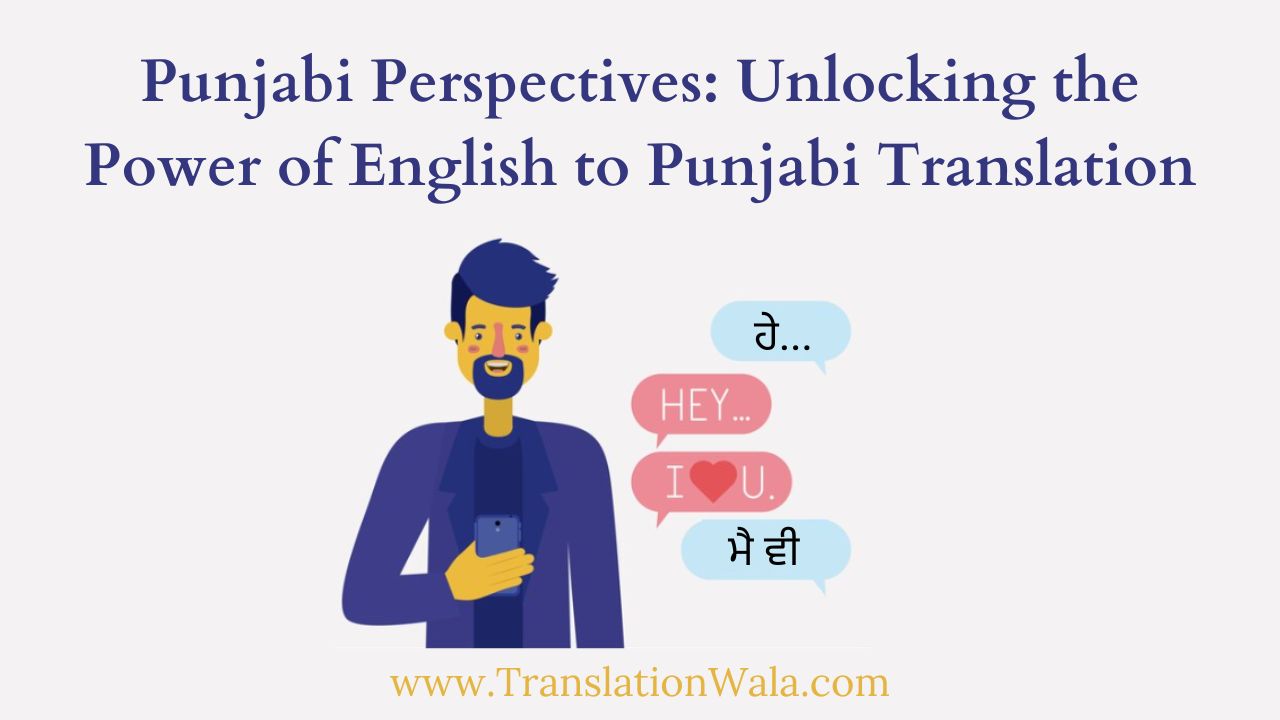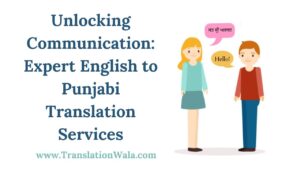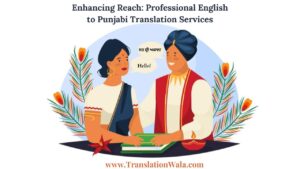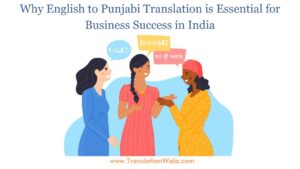Punjabi music has been playing on the lush fields of the country for hundreds of years. There are many words in it that come from history and legends. These words create a detailed picture of identity by repeating stories of love, loss, and enduring spirit. Everyday events are woven together with rhythmic cadences and vivid metaphors, which shape the very core of Punjabi culture. But in a world that is becoming more and more linked, an important question comes up: how can we make sure that this beautiful fabric continues to shine on the world stage? The answer lies in part in the power of translation, more especially the power of English to Punjabi Translation.
Bridging the Gap: Accessing Knowledge and Opportunity
For many Punjabi speakers, being able to speak English well opens up opportunities to move up in school and the workplace. Having access to a huge amount of knowledge and opportunities in other countries is made possible by it. Many times, though, this means that Punjabi is ignored and only used at home or for personal communication. This makes a language gap, making it hard for Punjabi speakers to be heard outside of their own groups.
English to Punjabi Translation: Sharing the Tapestry with the World
Punjabi people can share their stories, points of view, and rich culture past with the rest of the world through translation from English to Punjabi. People from all over the world, even those who don’t speak Punjabi, could enjoy writing, songs, and singing in Indian language. College papers and old records are being turned into Punjabi. This will help people in the future learn more about the history and customs of Punjabi people.
Beyond Communication: Fostering Pride and Identity
English to Punjabi translation is useful for a lot more than just talking to each other. It gives people who speak Punjabi a strong feeling of national identity and pride. It gives them the freedom to interact with the world on their own terms, without having to follow a conversation that is mostly in English. Such a wide range of feelings, thoughts, and experiences can be expressed in the Punjabi language, which shows how rich and difficult it is.
Also Read: Unlocking the Beauty of Bilingualism: A Guide to English to Hindi Translation

Navigating the Nuances: The Art of Human Translation
When you have to translate from English to Punjabi, things can get tricky. People use words and put ideas together in two different ways that are socially different. If you want to be a good speaker, you need to know a lot about both languages and how they are different from each other cultures.
Interpreters who are real people really do an important job here. There has been a lot of progress in machine translation over the last few years, but it is still a long way from being able to fully understand human language. This is very true for languages like Punjabi that have a lot of cultural meaning. Human translators can get around these issues by using their knowledge, experience, and understanding of other cultures to make versions that are not only right but also have a lot of meaning for the people who read them.
Investing in the Future: Preserving and Sharing Punjabi Culture
Aside from language, paying for English to Punjabi translation is also a way to preserve Punjabi culture for future generations. It has to do with making sure that people all over the world hear, understand, and value Punjabi views. To make the world a better place for English and Punjabi to grow, so people can converse more and understand each other better.
Let the Tapestry Shine: Supporting Initiatives and Celebrating Translation
So let’s enjoy how English to Punjabi Translation can change things. Let us back projects that encourage the translation of Punjabi music, writing, and intellectual works. Let’s help skilled Punjabi translators get better so they can help people who speak different languages understand each other and use the full power of the Punjabi language. This way, we can make sure that the rich weave of Punjabi culture stays shining brightly for everyone to see and enjoy, not just future generations.



